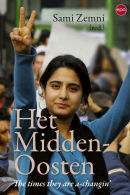(24-04-2013) Iraq: State terrorism in Hawija
(15-04-2013) Assassinations Grow as Iraqi Elections Near
(07-04-2013) News > World > Middle East Iraq executing more people than it has for almost a decade, says ...
(04-04-2013) GICJ Strongly Condemns Recent Executions in Iraq
(24-04-2013) Iraq: State terrorism in Hawija
(05-01-2013) To an Unknown Iraqi
(24-04-2013) Iraq: State terrorism in Hawija
(10-04-2013) Human Rights Groups Against Human Rights
(06-04-2013) Summary of Events of the Iraqi Popular Revolution
(29-04-2013) Immediate Release : Report of a Fact Finding Mission on Congenital Birth Defects in Fallujah, ...
(06-04-2013) 1,000,000 Kids Impacted by Mines in Iraq
(06-04-2013) AMERICA’S FALLUJAH LEGACY: WHITE PHOSPHOROUS, DEPLETED URANIUM: THE FATE OF IRAQ’S CHILDREN
(03-05-2013) Al-Maliki is directing Iraq to war once again
(03-05-2013) Iraq snapshot
(01-05-2013) Hawija investigation results revealed
(05-05-2013) So, that worked out well
(05-05-2013) Attacks in Iraq kill 9, wound 33
(03-05-2013) Iraq Violence Leads To Deadliest Month In 5 Years
(03-05-2013) Iraq's Worsening Situation
(08-04-2013) Iraqi Minorities, A Spring Experience In Crisis
(25-09-2012) Iraqi Jews reject ‘cynical manipulation’ of their history by Israel, Zionists, writer Almog ...
(12-03-2013) UN Human Rights Reports March 2026
(10-04-2013) Iraqi refugees in Syria feel new strains of war
(27-09-2012) Protest Against Islamophobia
(27-09-2012) IS IRAQ'S DAWA PARTY RETURNING TO THEIR ISLAMIST ROOTS OR JUST TRYING TO SHORE UP THEIR BASE?
(25-09-2012) The Human Cost of Western Fundamentalism
(19-02-2013) Iraq Back at the Brink
(06-02-2013) Privileges of New Democratic Iraq: Rape & Torture of Innocent Women in Maliki’s Prisons
(23-12-2012) How many more innocent people will be sentenced to death for the bombing of the Foreign and Finance ...
(19-12-2012) Iraq: General Prosecutor Confirms Torture and Rape of Detained Women. European Court of Human ...
(15-04-2013) Iraq: The Invasion of Our Nation Goes Unpunished
(03-04-2013) Hidden War Crimes in Iraq
(26-03-2013) 'US manipulated public opinion before Iraq war'
The BRussells Tribunal is independent and wants to remain independent.
The BRussells Tribunal is an activist think tank and peace organisation with a special focus on Iraq. Read more...



 The times they are a-changin' is het eerste grondige Nederlandstalig overzicht dat voorbij oppervlakkigheden en algemeenheden wandelt, en ook nog eens de hele regio bestrijkt, van Egypte en Tunesië tot Marokko, Libië, Syrië, Libanon, Palestina, Jemen, Jordanië, Irak, Bahrein en Israël. Daar bestaat een woord voor: een standaardwerk.
The times they are a-changin' is het eerste grondige Nederlandstalig overzicht dat voorbij oppervlakkigheden en algemeenheden wandelt, en ook nog eens de hele regio bestrijkt, van Egypte en Tunesië tot Marokko, Libië, Syrië, Libanon, Palestina, Jemen, Jordanië, Irak, Bahrein en Israël. Daar bestaat een woord voor: een standaardwerk.